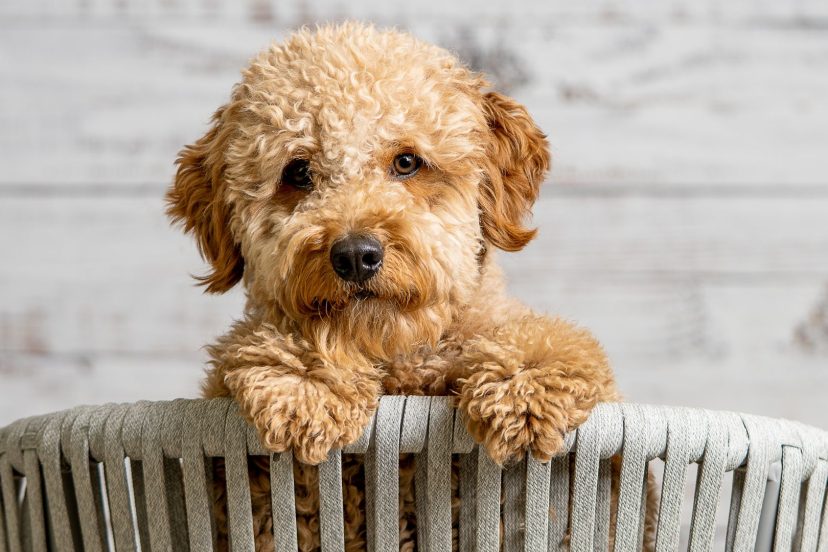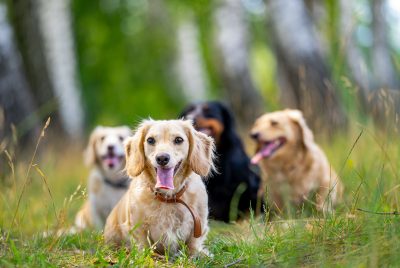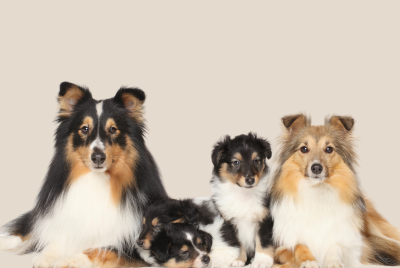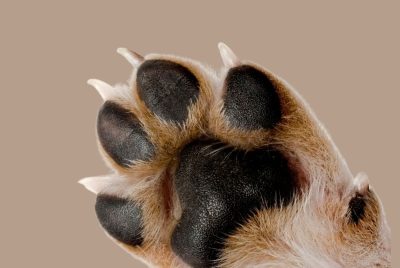Shocking Reveals: Reasons Why Your Dog Stares at You?
Dogs have a reputation for being man’s best friend. As a dog owner and lover myself, I know the joy of coming home to my golden doodle’s smiling face and wagging tail. However, sometimes our canine companions like to just sit and stare at us intently. This unbroken gaze can be unnerving for some pet parents. Why does your dog insist on giving you such an intense look? Here are some of the main reasons why your dog stares at you.
They Are Trying to Communicate
One of the main reasons your dog stares at you is because they are trying to communicate. Dogs aren’t able to speak our language, so they rely on body language and cues to express themselves. When your dog gives you a long, hard stare, pay attention. They may be trying to tell you something important.
They Want Your Attention
Many times, a dog’s stare is their way of saying “pay attention to me!” Dogs are social creatures who crave interaction and play. If your dog is staring, try engaging with them. Initiate a game of fetch or give them some affection. This will likely satisfy their desire for attention.
Something Is Wrong
Dogs also stare to alert us when something is wrong. If your dog is staring at you with a tense body posture, they may be trying to tell you they are hurt or unwell. Check for any injuries and contact your vet if your dog seems to be in pain or distress. Don’t ignore this stare – your dog needs help.
They Have to Go Out
A dog’s stare can also mean they need to go outside to relieve themselves. If your dog is housetrained, pay close attention to staring behavior near the door or their leash. This is Fido’s way of saying they need a bathroom break. Let them out to avoid any accidents indoors.
They Are Reading Your Emotions
Dogs have evolved to be highly skilled at reading human emotions and body language. When your dog stares at you, they may just be gathering information about how you are feeling.
They Sense Sadness or Stress
Your dog’s stare may be their way of responding to signs of sadness or stress. They pick up on subtle cues indicating you are not your usual self. The stare is meant to comfort you and let you know you are not alone.
They Are Confused
Dogs may also stare when they are confused by your words or actions. If you are angry or upset, they want to fully understand the situation. Give your dog reassuring affection if their stare seems to be one of confusion or concern.
They Are Checking Your Reaction
Sometimes dogs simply stare to gauge human response. If your dog tries a new trick or accomplishes something, they will stare at you to determine if you are happy or displeased. They are looking for praise and confirmation they did the right thing.
They Want Something From You
The intent gaze of a dog is also used to ask their human for something they want or need. Be aware of what your dog’s stare may be requesting.
They Are Hungry
Around mealtimes, your dog’s stare is obvious – feed me! Dogs quickly learn that their pleading eyes can often result in an early dinner or a tasty treat.
They Need to Play
A playful stare is your dog’s way of asking you to engage in a fun game of fetch or tug of war. Make some time for interactive play when you notice this familiar look.
They Want Affection
Your dog may also stare deeply at you when they are craving affection and bonding. Respond by petting them, giving a belly rub, or engaging in a soothing cuddle session.
They Are Guarding You
For some dogs, a hard stare is a way to keep watch over their loved ones. This guarding behavior comes from a natural instinct to protect.
They Are On Alert
When your dog stares intently at you with perked up ears, they may be going into alert mode about something amiss in your surroundings. Resist scolding them – this is their way of keeping you safe.
They Feel Threatened
Your dog may also stare down new people, animals, or situations they find threatening. Their stare is meant to deter the perceived threat. Stay calm and gently reassure your dog all is well.
They Are Feeling Protective
Mother dogs often give an unwavering stare to watch over their puppies closely. This is the look of ultimate protection and love. For other dogs, the same strong stare applies to their human family.
Frequently Asked Questions
1. Why does my dog stare at me when I eat?
Dogs often stare at their owners while they eat because they hope to receive a tasty morsel or treat. This behavior is reinforced over time if they have ever received food from you while you were eating. It’s a way of begging, and many dogs are quite skilled at those pleading puppy eyes!
2. Is it normal for my dog to stare at me while I’m working?
Yes, it’s completely normal! Your dog may be seeking attention, feeling bored, or simply wanting to be near you. If the staring becomes persistent, consider taking short breaks to give your dog some affection or playtime.
3. What does it mean when my dog stares at me with a tilted head?
When a dog tilts their head while staring, it often indicates curiosity or confusion. They may be trying to process what you’re saying or assessing a situation. This behavior is typically endearing and shows that your dog is engaged with you.
4. Should I be worried if my dog stares at me intensely for long periods?
If your dog’s stare seems intense or is accompanied by signs of stress, anxiety, or discomfort, it’s worth investigating further. This could be a sign of something wrong physically or emotionally. If you’re concerned, consult your veterinarian for advice.
5. Can staring be a sign of aggression in dogs?
Yes, while most staring is harmless, it can sometimes indicate aggression, especially if combined with a stiff body posture, growling, or a raised lip. If your dog is staring at another dog or person in a tense way, it’s essential to intervene and redirect their attention to prevent potential conflict.
Final Thoughts
As you can see, your dog’s stare can convey a range of messages and meanings. By understanding all the reasons dogs look at us so intensely, we can better respond to their needs. Whether your dog is staring out of boredom, anxiety, or pure love, the best response is always affection and reassurance.
With the right care and training, you can even teach your dog more constructive ways to communicate their wants and feelings. If your dog seems to be staring frequently for no reason, a vet visit may be needed to rule out any medical issues. Otherwise, be thankful for your dog’s natural ability to connect with you through their soulful eyes. Those long gazes are your dog’s special way of strengthening your lifelong bond.




